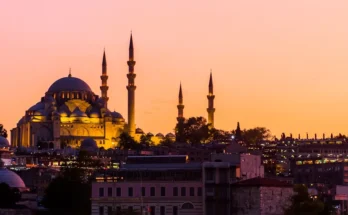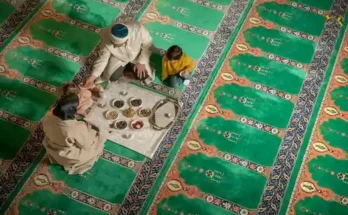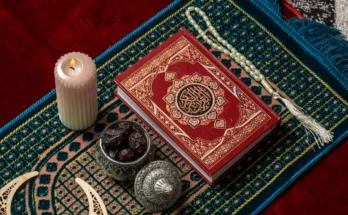In a world filled with confusion, spiritual emptiness, and a relentless search for purpose, one religion stands firm as a beacon of clarity, justice, and mercy: Islam. It is more than a belief system; it is a complete way of life — a divine framework handed down from the Creator for the guidance of humanity. Through its timeless teachings, Islam has transformed hearts, shaped civilizations, and brought justice and dignity to millions, regardless of race, gender, or status.
Let’s journey through the truth of Islam, its powerful rise in history, its unmatched spiritual blueprint, and the honor it restores to the hearts of both men and women.
The Truth of Islam:
At the heart of Islam is Tawheed, the belief in the absolute oneness of God (Allah). Unlike other religions that may assign partners to God or divide divinity into different forms, Islam is unwavering in its monotheism. The Qur’an declares, “Say: He is Allah, the One and Only; Allah, the Eternal, Absolute; He begets not, nor is He begotten” (Qur’an 112:1-3).
This message was not new; it was the same truth revealed to prophets like Noah, Abraham, Moses, and Jesus — peace be upon them all. Islam is the final and completed version of this universal message, restored in its purest form through the last prophet, Muhammad ﷺ.
The Qur’an is the literal word of God, preserved for over 1,400 years without a single alteration. It challenges humanity to produce even a single chapter like it, which none have succeeded in doing. The Qur’an isn’t merely a spiritual text — it’s a comprehensive guidebook that addresses theology, morality, economics, justice, relationships, and more.
Islam’s Conquest of the World:
-
A Historical Force of Justice and Civilization
Within a few decades of Prophet Muhammad’s ﷺ death, Islam spread from the Arabian Peninsula across North Africa, into Spain, India, and deep into Asia. But contrary to common misconception, Islam’s expansion was not primarily due to war or force. Many of its greatest triumphs were achieved through trade, scholarship, and the compelling beauty of Islamic values.
Cities like Baghdad, Cordoba, and Cairo became epicenters of learning, architecture, and tolerance. While Europe struggled through the Dark Ages, the Islamic world preserved ancient Greek texts, advanced medicine, developed algebra, and founded hospitals and universities.
-
A Global Brotherhood
One of the unique aspects of Islam’s appeal was its message of equality. From the deserts of Arabia to the jungles of Indonesia, people of various languages and cultures accepted Islam, creating a global brotherhood bonded not by blood or race, but by faith. This is reflected in the pilgrimage of Hajj, where millions stand side by side, rich and poor, black and white, united as one before their Creator.
Islam as the Road to Guidance and Success:
-
A Life of Purpose and Inner Peace
Success in Islam is not measured by wealth, fame, or status — it is measured by closeness to Allah and living a life in accordance with His guidance. Islam offers answers to the questions that haunt many: Why are we here? What happens after death? How should we live?
By submitting to Allah and following the Sunnah (tradition) of the Prophet ﷺ, a Muslim finds peace in the heart, discipline in life, and clarity in purpose. The Prophet Muhammad ﷺ said, “Verily, in the body there is a piece of flesh which, if sound, the whole body is sound. If it is corrupt, the whole body is corrupt. Truly, it is the heart.” Islam purifies this heart and fills it with light.
-
Guidance for All Aspects of Life
Whether it’s how to eat, how to pray, how to treat parents, or how to govern a nation — Islam offers detailed, practical teachings. Through five daily prayers, fasting during Ramadan, giving charity, and making pilgrimage, Muslims continuously reconnect with their Creator. These acts are not burdens, but blessings — spiritual oxygen for the soul.
Women in Islam:
-
Divine Rights and Protection
One of the most misunderstood aspects of Islam is its treatment of women. In reality, Islam was revolutionary in granting rights to women that the rest of the world took centuries to recognize. Over 1,400 years ago, Islam gave women the right to inherit, own property, choose their spouse, seek divorce, and receive education.
The Prophet ﷺ said, “The best of you are those who are best to their women.” He uplifted women in a society that once buried their daughters alive. His own beloved wife, Khadijah (RA), was a successful businesswoman and his greatest supporter.
-
Modesty and Dignity
Islam’s teachings on hijab and modesty are often misunderstood. Rather than oppression, they represent empowerment — a woman is valued for her character, intellect, and piety, not her appearance. In a world that often commodifies and objectifies women, Islam restores her dignity and protects her honor.
A Guide to Fulfilled Life:
-
Morality, Justice, and Compassion
Islam teaches its followers to live with ihsan — excellence in every action. Whether in business, family, or society, Muslims are taught to uphold justice, speak the truth, and show mercy. Islam forbids cheating, lying, backbiting, and harming others. Even in war, Islam commands mercy — no killing of innocents, destruction of crops, or abuse of prisoners.
The Prophet Muhammad ﷺ was the walking Qur’an — the living example of all these values. He never hit a child, never raised his voice out of anger for himself, and always smiled at others. Even his enemies testified to his truthfulness.
-
Charity and Brotherhood
Zakat (obligatory charity) and Sadaqah (voluntary charity) ensure that the poor are cared for and society remains balanced. Islam teaches that what you give never decreases your wealth. This generosity fosters love, unity, and compassion among the community — values the modern world is desperately seeking.
The Role Model in Islam:
The Prophet Muhammad ﷺ is not just a religious figure; he is the perfect human example. A father, husband, leader, friend, and prophet — his life is a comprehensive model for anyone seeking success in both this world and the hereafter.
The Qur’an describes him as “a mercy to the worlds” (Qur’an 21:107). His patience with enemies, kindness to animals, and love for children reveal a heart filled with divine light.
To truly understand Islam, one must study his life. Every aspect — from how he ate to how he forgave those who harmed him — teaches us how to live with grace, strength, and humility.
Conclusion:
Islam is not just a religion — it is a return to our natural state, our fitrah. It reconnects us with our Creator, realigns us with our purpose, and offers a roadmap to success, peace, and eternal salvation.
In a world drowning in chaos, Islam stands as a lighthouse on the shore, calling us back to truth. It is a path open to all — regardless of your past, race, or background. Anyone who sincerely seeks truth will find their heart at ease in the remembrance of Allah.
As the Qur’an beautifully says:
“Verily, in the remembrance of Allah do hearts find rest.” (Qur’an 13:28)
Come to Islam, and come home.




